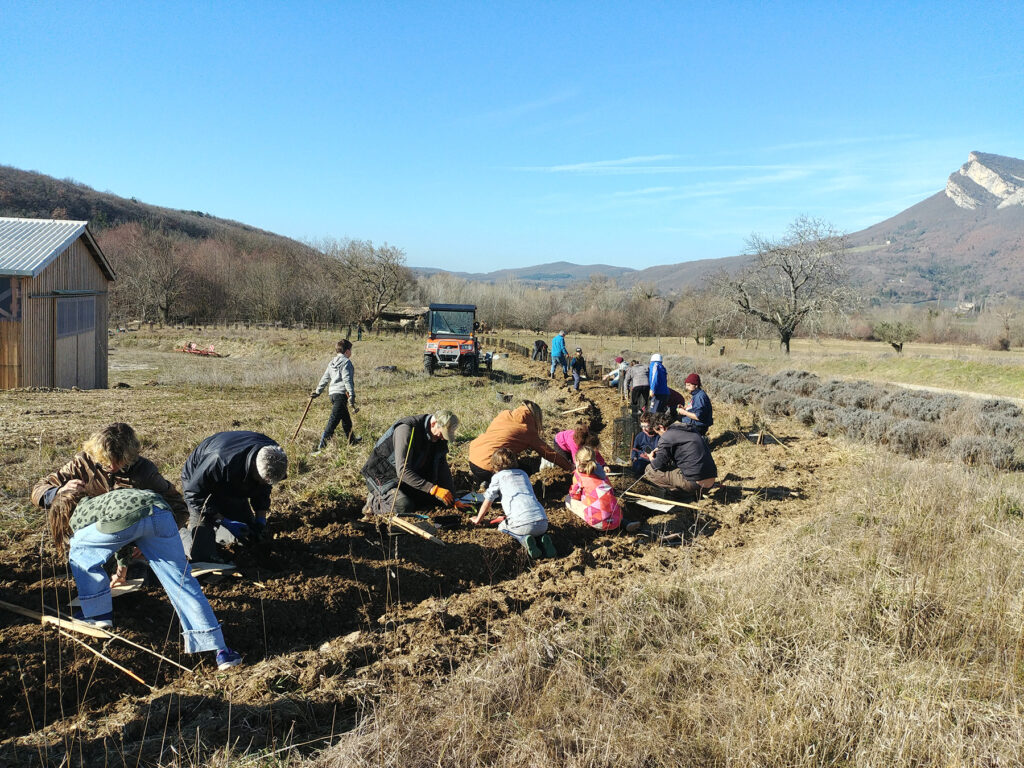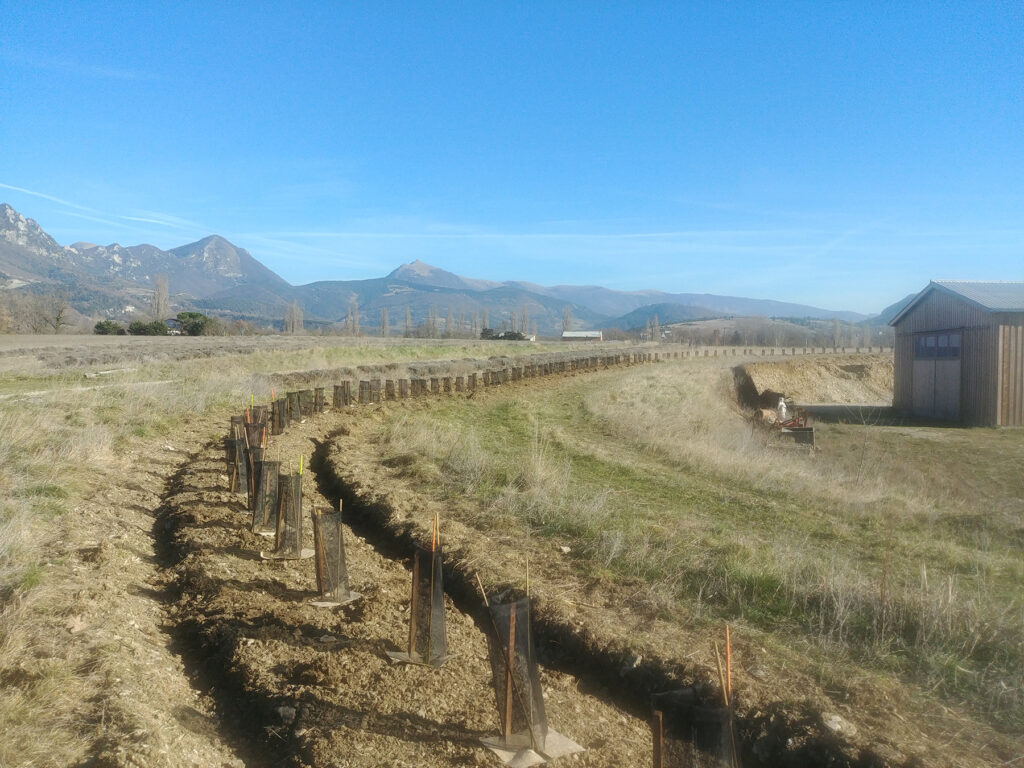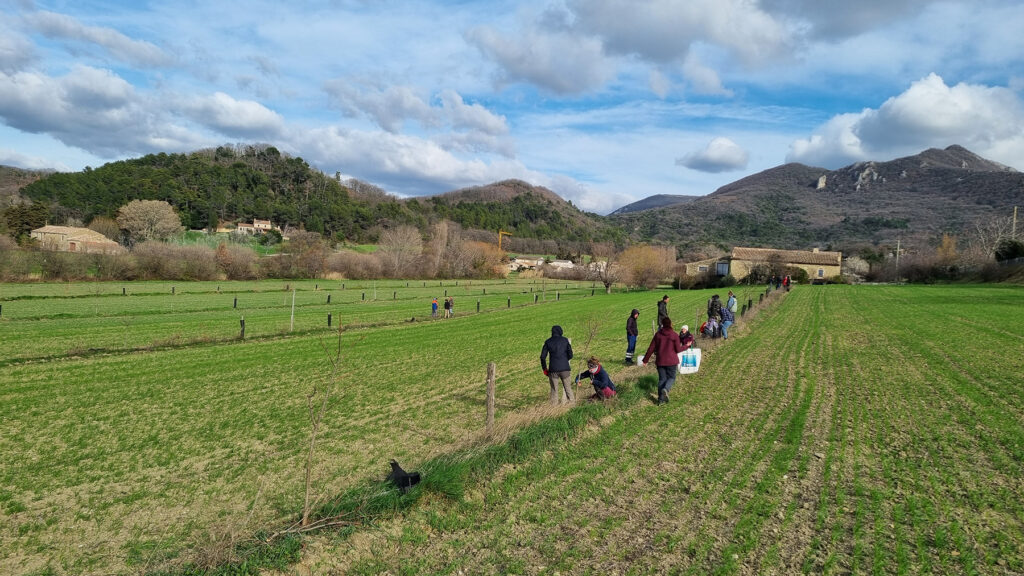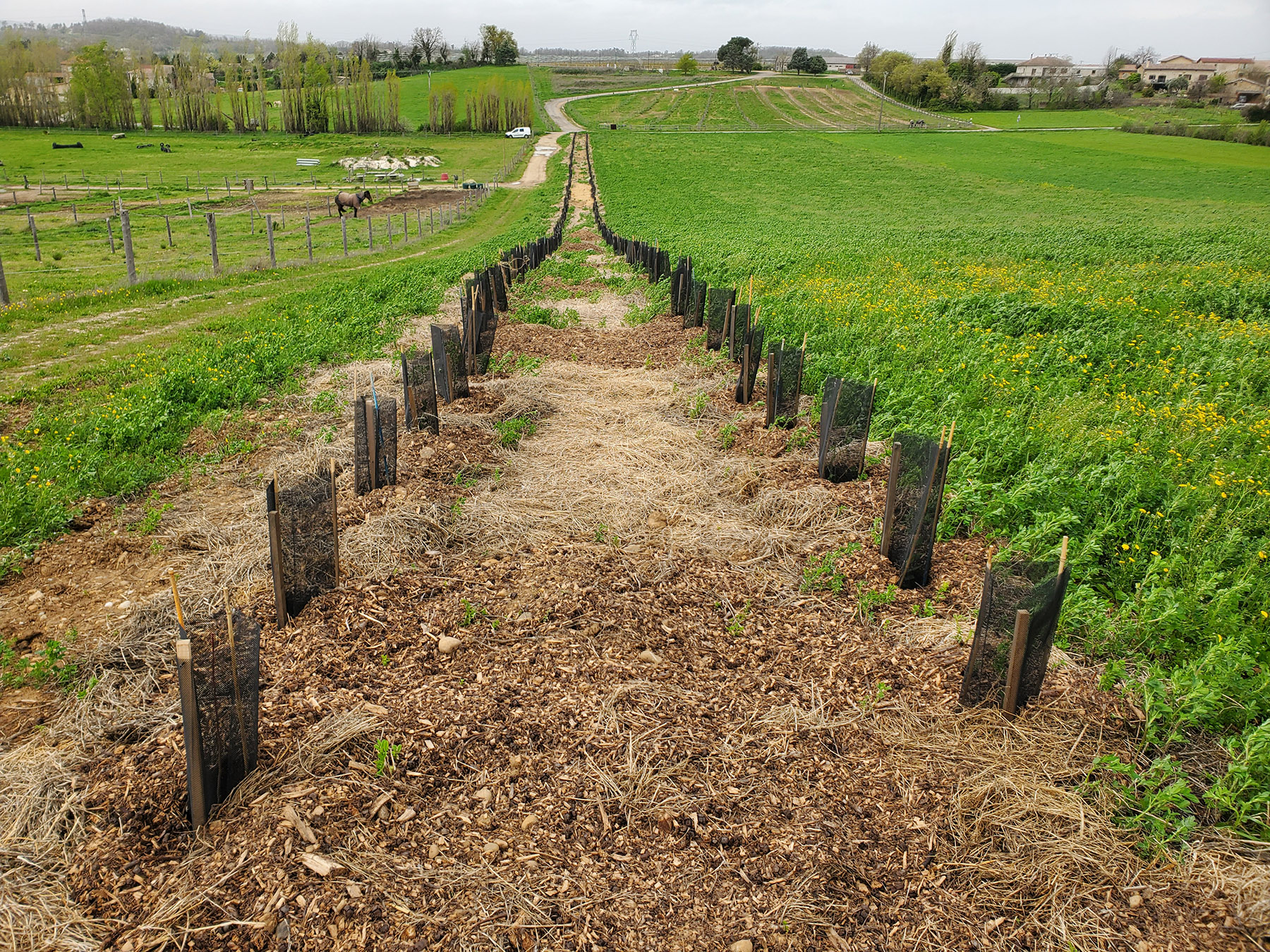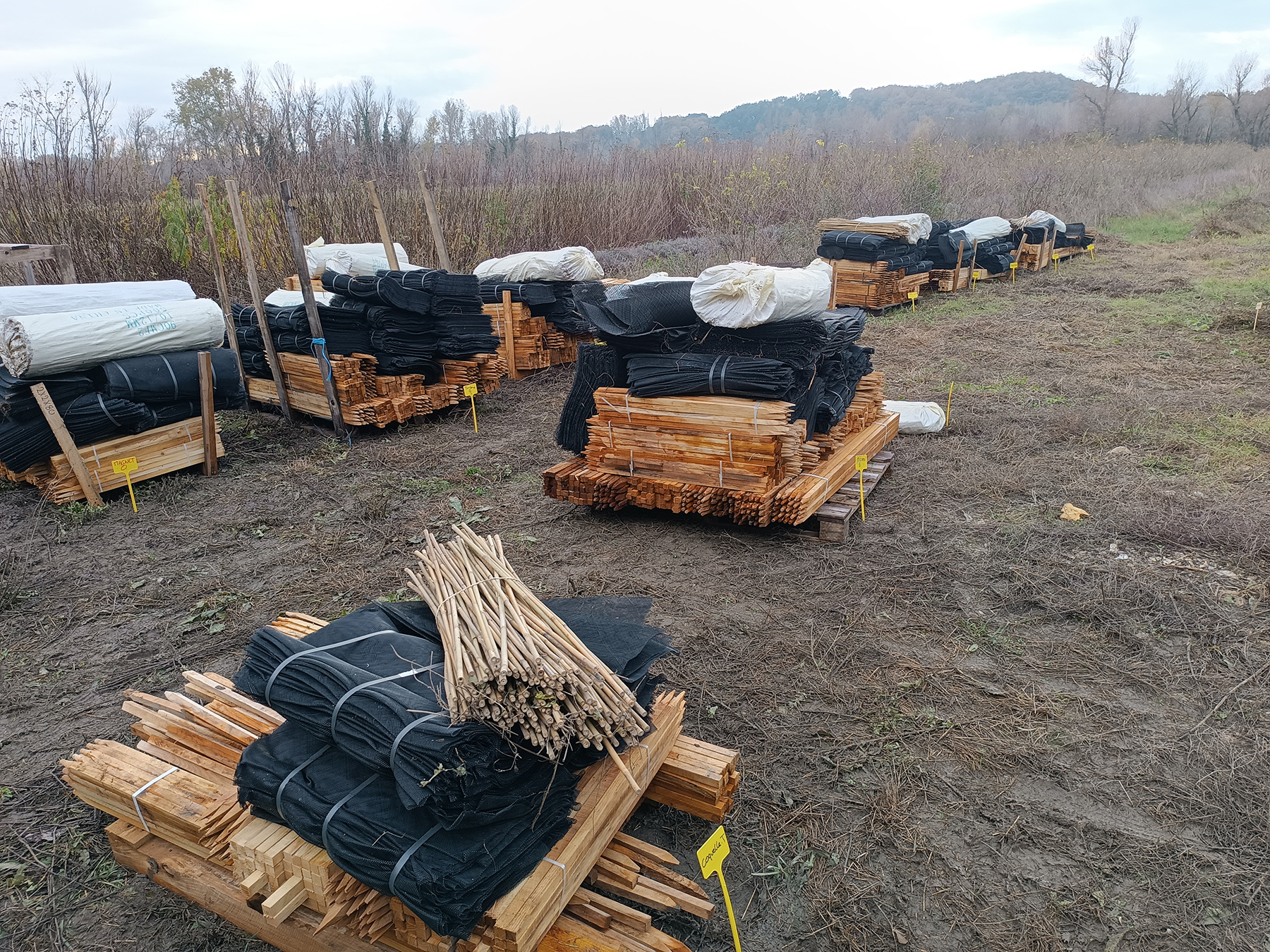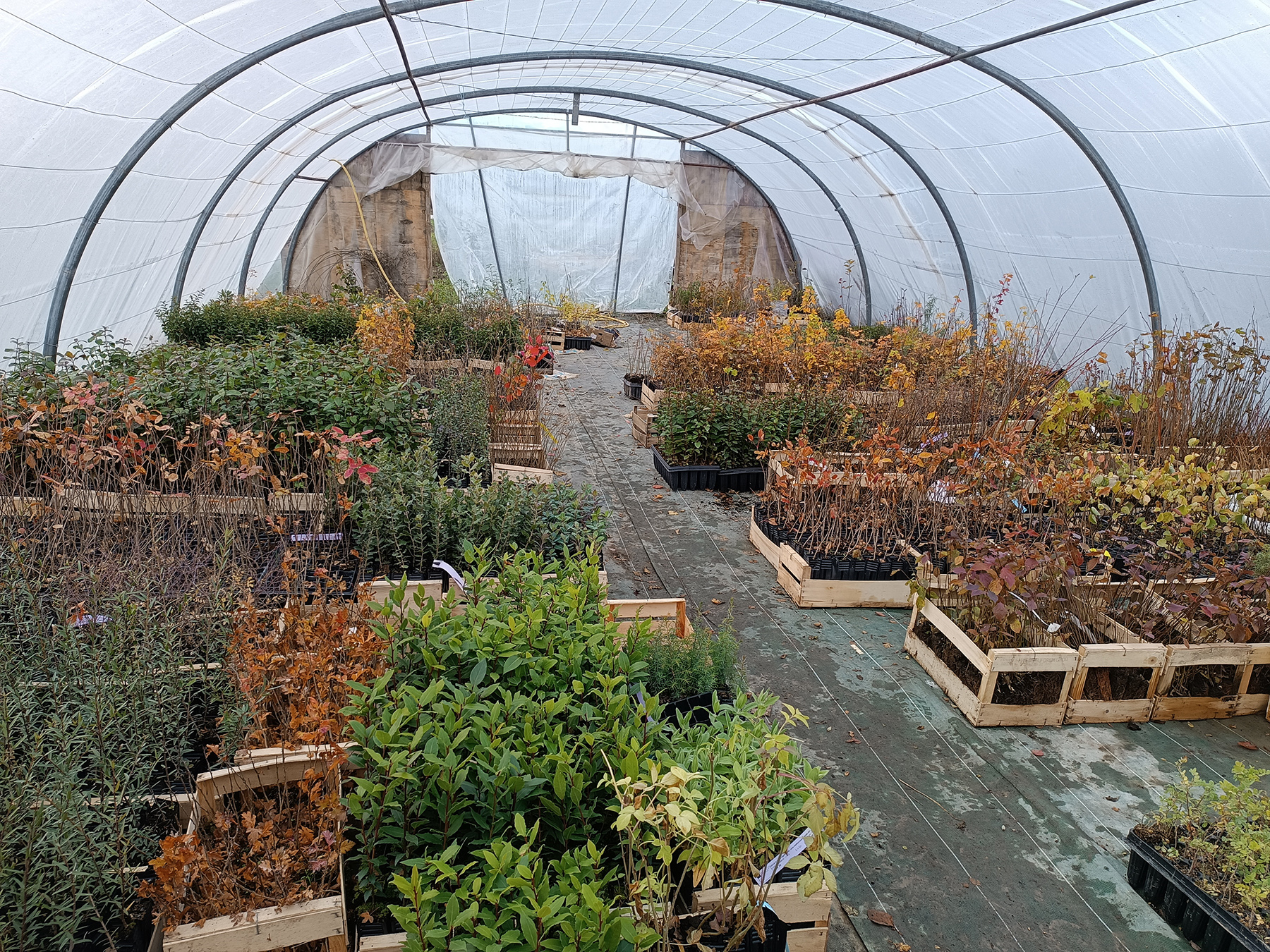In a vulnerable area of Drôme – Ardèche, Almayuda is working alongside ADAF (Association Drômoise d’Agroforesterie), on the initiative and under the aegis of the GoodPlanet Foundation, to develop agroforestry and improve the resilience of agricultural systems in the face of climate challenges. Resources deployed over two years to achieve this objective: participation in the planting of 5,000 trees on ten farms, the creation and fitting out of a plant storage and management facility, and the purchase of collective tools and equipment to make available to farmers.
In the south of the Auvergne Rhône-Alpes region, Drôme and Ardèche, particularly in their southern part, are confronted with extreme climatic events such as drought and flooding. Water resources, soils and biodiversity, already affected by pollution from sanitary products used in conventional agriculture, are obviously severely impacted. Last but not least, in these départements, where the local economy is heavily dependent on tourism, preserving nature and landscapes is an important issue.
Response from the field
The aim of the project supported by the Almayuda Foundation is to contribute to a response that involves the development of agro-ecological practices. Sober and more virtuous solutions to participate in the ecological transition of agriculture.
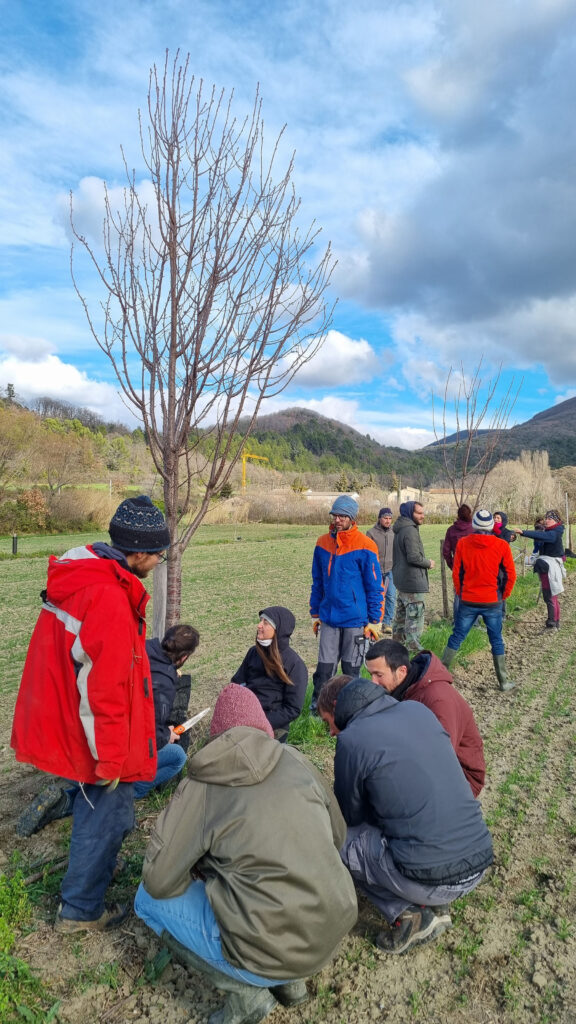
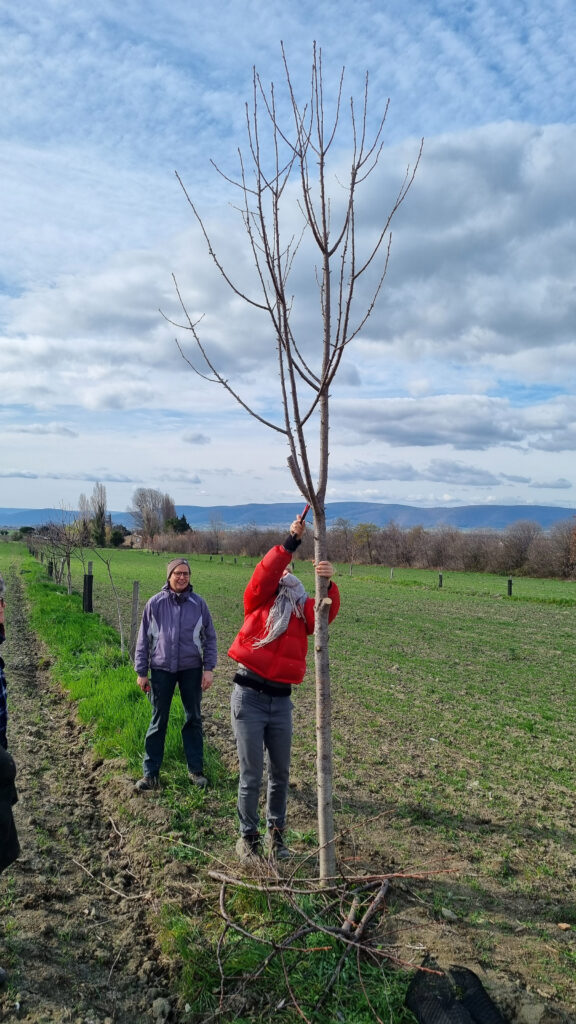
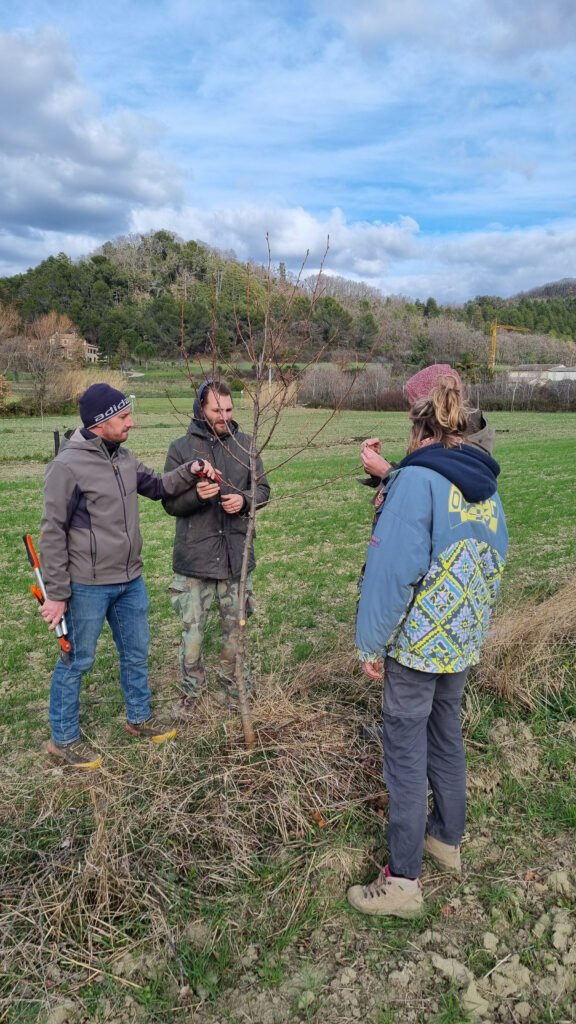
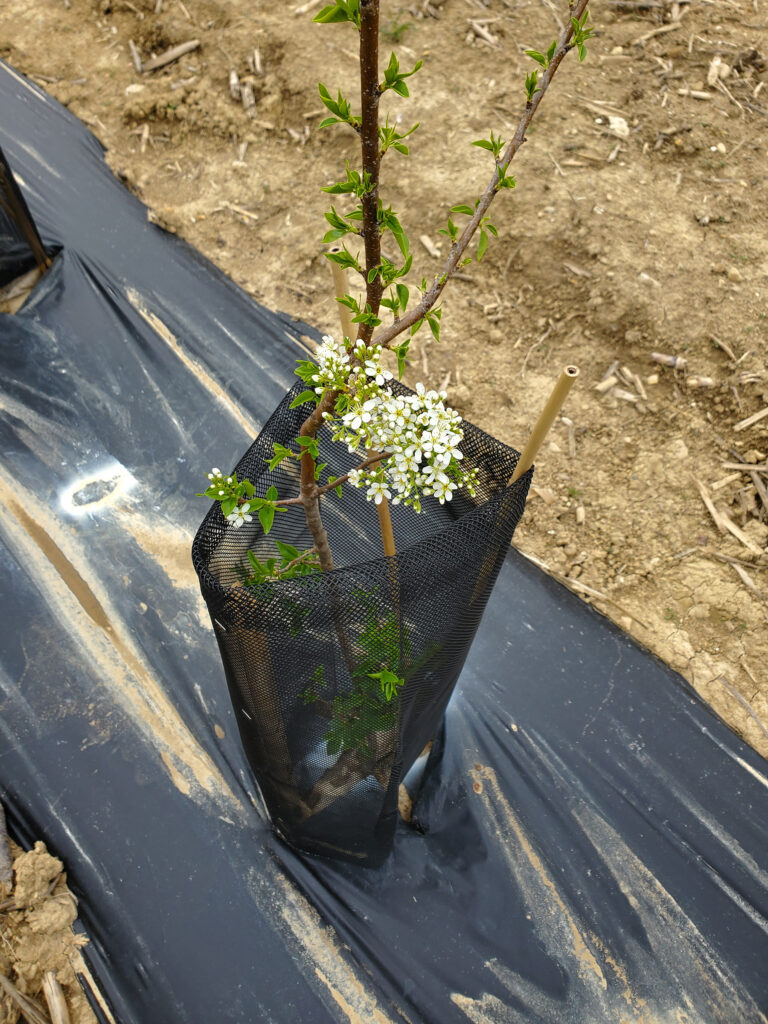

On the ground, the actions are implemented by “ADAF, arbre et sol vivant”, in conjunction with Yann Arthus-Bertrand’s GoodPlanet Foundation. Alongside some forty farmers and scientific partners, the ADAF association has been running a research and development project entitled “Co-construction of agroecological knowledge in agroforestry and soil conservation” in the Drôme and Ardèche regions since 2016.
As part of this program, it advises and financially supports volunteer farmers, from conception to planting, in implementing agroforestry projects and sowing techniques under plant cover.
What is agroforestry?
Agroforestry refers to practices that combine the planting of trees with crops or livestock. These trees are planted along the edges of plots of land, in hedgerows or in “open field” alignments.
If these plantations have so many virtues, it’s because the tree itself is a concentrate of virtues. They protect against bad weather, such as wind that dries out the soil. They trap carbon; they are a refuge for biodiversity; they retain water; they filter fertilizer residues; they increase soil fertility and reduce erosion; they contribute to animal welfare… Because their presence makes it possible to initiate other types of production, they are also a vector for diversification and increased income for farmers.
To illustrate its benefits and qualities, consider that a single tree restores around 100m2 of soil, acting on two levels. Soil preservation, by limiting loss of fertility through erosion or runoff. The enrichment and stimulation of life, thanks to the leaves, fruit, seeds and small branches that fall to the ground and are decomposed into humus by the soil’s living micro-organisms.
Expected results
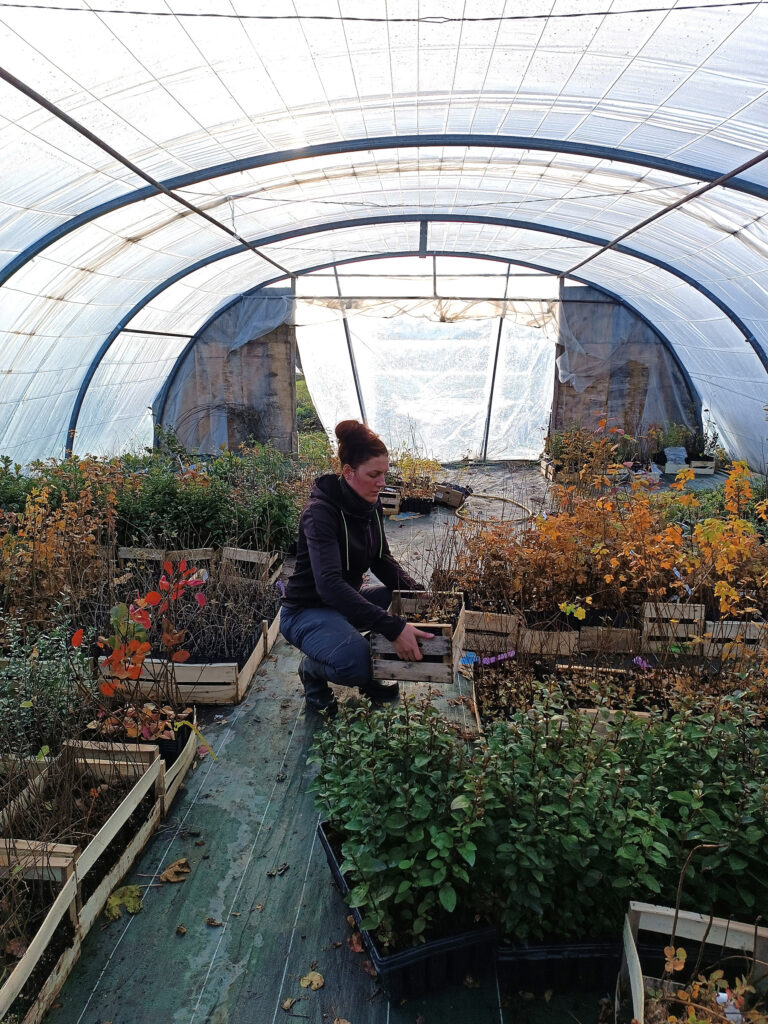
The project piloted by ADAF and supported by Almayuda, alongside other funders and patrons, is structured around three actions over two years (2023 / 2024 and 2024 / 2025).
1- Plant 5,000 agroforestry trees on ten farms, 2,500 per year.
2- Set up and equip a plant storage and management facility (greenhouse, irrigation, overwintering sails, etc.).
3- Purchase and provide farmers with collective tools and equipment: mulch uncoiler, thermal auger, 3-tooth subsoiler, heated sowing table, fridge for stratification, irrigation equipment for the greenhouse, trailer, weather probes for monitoring, etc.
Despite a very wet spring, which hampered the organization of work in the fields, the 2023 / 2024 objectives were reached and even exceeded, with 2814 trees and shrubs finally planted on seven farms. It’s worth noting the active participation of schools in the operation, with several classes, from primary to BTS agricoles, taking part in the planting.
Photos : DR
Useful links
https://www.adaf26.org/
https://www.goodplanet.org/fr/


